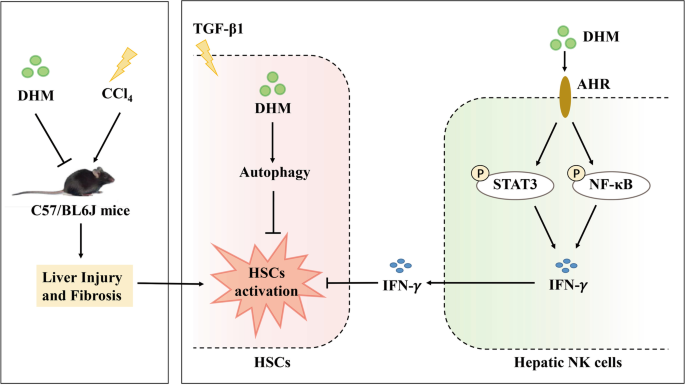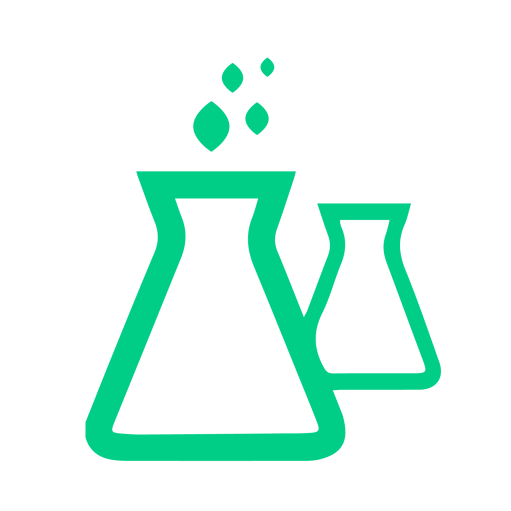
The liver is a vital organ responsible for numerous essential functions, including detoxification, metabolism, and the synthesis of important proteins. However, it is susceptible to damage from various factors such as alcohol, drugs, viral infections, and poor dietary habits. Recently, research has highlighted the potential of a natural compound called dihydromyricetin in protecting and improving liver health. This article explores what dihydromyricetin is, its properties, how it improves damaged liver cells, and its other health benefits.
What is Dihydromyricetin
Dihydromyricetin (DHM) is a flavonoid compound extracted from plants like the Japanese raisin tree and southern bayberry. It has gained significant attention for its various biological activities, especially in antioxidant, anti-inflammatory, and liver-protective effects. Dihydromyricetin has been extensively studied and shown to offer numerous health benefits, particularly in liver protection.
Physical and Biological Properties of Dihydromyricetin
Physical characteristics
- Chemical Structure: DHM is a flavonoid compound with a complex chemical structure, including several phenolic hydroxyl groups and ether linkages.
- Water Solubility: Poorly soluble in water but very soluble in organic solvents such as ethanol and methanol.
- Stability: Dihydromyricetin is chemically stable under normal conditions. However, it can be degraded in a strongly acidic or alkaline environment.
Biological factors:
- Antioxidant properties: DHM is a potent antioxidant, that can scavenge free radicals and reduce damage caused by oxidative stress to cells.
- Anti-inflammatory: Effectively reduces inflammation by inhibiting the production and release of inflammatory cytokines.
- Antibacterial properties: Studies have shown that DHM has antibacterial properties, helping to prevent the reactivation of certain bacteria.
How Dihydromyricetin Protects the Liver
Anti-inflammatory properties
During liver function, it often produces free radicals, which can cause oxidative stress and damage liver cells. Dihydromyricetin, which has strong antioxidant properties, reduces oxidative stress by neutralizing these free radicals and protects liver cells from damage.
Anti-inflammatory effects
Liver damage is often accompanied by inflammation, which can lead to further liver cell damage. DHM reduces this inflammation by inducing the production of pro-inflammatory cytokines such as TNF-α and IL-6, thereby reducing liver cell damage and death.
Anti-fibrotic effect
chronic liver damage can lead to hepatic fibrosis, which can progress to hepatitis. Dihydromyricetin promotes the reduction and reversal of hepatic fibrosis by inhibiting hepatic stellate cell activation and collagen synthesis, thereby preserving liver structure and function.
Anti-apoptotic effects
Hepatocyte apoptosis (programmed cell death) is a major mechanism of liver damage. DHM protects hepatocytes by inhibiting apoptosis and regulating cell signaling pathways such as Bcl-2 family proteins and caspases to increase cell survival and function.
Amelioration of alcohol-induced liver failure
Excessive alcohol consumption is the leading cause of liver damage. Research shows that dihydromyricetin accelerates the metabolism of alcohol, reduces acetaldehyde accumulation, reduces alcohol-induced toxicity to liver cells, and thus protects the liver.

Fig 1. Mechanism of action of DHM in preventing liver fibrosis[1]
Other Benefits of Dihydromyricetin
1. Anti-cancer Effects
Dihydromyricetin has shown anti-cancer activity by inducing apoptosis and inhibiting the proliferation of cancer cells. It has demonstrated significant inhibitory effects on various cancer cell lines, including liver, breast, and colorectal cancers.
2. Improvement of Metabolic Syndrome
Metabolic syndrome encompasses a range of metabolic disorders, such as obesity, diabetes, and hyperlipidemia. DHM helps regulate blood sugar, blood lipids, and body weight, improving insulin sensitivity and overall metabolic health.
3. Antibacterial Effects
Dihydromyricetin also exhibits antibacterial activity, inhibiting the growth of various pathogens, including Staphylococcus aureus and Escherichia coli. Its antibacterial mechanisms include disrupting bacterial cell membranes and inhibiting metabolic pathways.
4. Neuroprotective Effects
In terms of neuroprotection, dihydromyricetin reduces oxidative stress and inflammation, protecting neurons and alleviating symptoms of neurodegenerative diseases like Alzheimer’s and Parkinson’s.
Side Effects of Dihydromyricetin
Dihydromyricetin (DHM) has gained popularity for its health benefits, particularly in liver protection and antioxidation. However, like any supplement, it’s essential to be aware of potential side effects and precautions before using DHM. Here, we outline the known side effects and necessary precautions to ensure safe and effective use of DHM.
1. Gastrointestinal Issues
Some users may experience mild gastrointestinal discomfort, such as nausea, stomach cramps, or diarrhea. These symptoms are usually temporary and may diminish as the body adjusts to the supplement.
2. Allergic Reactions
Though rare, some individuals may experience allergic reactions to DHM. Symptoms can include itching, rash, swelling, dizziness, and difficulty breathing. If any allergic reactions occur, discontinue use immediately and seek medical attention.
3. Headache and Dizziness
Occasionally, DHM may cause headaches or dizziness in some users. These side effects are typically mild and temporary but should be monitored.
4. Low Blood Pressure
DHM has been noted to have a hypotensive effect, potentially lowering blood pressure. This can be beneficial for individuals with high blood pressure but might pose a risk for those with already low blood pressure, leading to symptoms like faintness or dizziness.
5. Interactions with Medications
DHM can interact with certain medications, particularly those metabolized by the liver. It may affect the efficacy of these drugs or increase the risk of side effects. Notable interactions can occur with medications such as blood thinners, diabetes medications, and others processed through similar pathways.
Precautions When Using Dihydromyricetin
1. Consult a Healthcare Provider
Before starting DHM, it is crucial to consult with a healthcare provider, especially if you have any underlying health conditions or are taking other medications. This will help ensure DHM is safe and suitable for your specific health needs.
2. Start with a Lower Dose
If you are new to DHM, start with a lower dose to see how your body reacts. This can help minimize potential side effects and allow you to adjust to the supplement gradually. Follow the recommended dosage on the product label or as advised by your healthcare provider.
3. Monitor for Side Effects
Pay close attention to any changes in your health after starting DHM. If you experience any adverse effects, such as severe gastrointestinal issues, allergic reactions, or significant changes in blood pressure, discontinue use and consult a healthcare professional.
4. Avoid Use During Pregnancy and Breastfeeding
There is limited research on the safety of DHM during pregnancy and breastfeeding. To err on the side of caution, it is advisable for pregnant or breastfeeding women to avoid using DHM unless specifically recommended by a healthcare provider.
5. Be Cautious with Alcohol
While DHM is often marketed for its ability to mitigate hangovers and alcohol-related liver damage, it is not a substitute for responsible drinking. Excessive alcohol consumption poses significant health risks, and relying solely on DHM for liver protection is not advisable.
6. Store Properly
To maintain the effectiveness of DHM, store it in a cool, dry place, away from direct sunlight and moisture. Follow the storage instructions provided on the product label.
7. Check for Quality and Purity
Ensure you purchase DHM from reputable sources. Look for products that have been tested for quality and purity by third-party laboratories to avoid contaminants and ensure you are getting a genuine supplement.
Conclusion
DHM, a natural compound with multiple biological activities, stands out particularly in liver protection. It significantly improves damaged liver cells through its antioxidant, anti-inflammatory, anti-fibrosis, and anti-apoptotic properties. Additionally, dihydromyricetin offers a wide range of other health benefits, including anti-cancer, metabolic syndrome improvement, antibacterial, and neuroprotective effects.
Dihydromyricetin (DHM) offers numerous health benefits, particularly in liver protection and antioxidation. However, being aware of its potential side effects and taking necessary precautions can help you use DHM safely and effectively. Always consult a healthcare provider before starting any new supplement, monitor your body’s response, and prioritize quality when choosing DHM products. By doing so, you can maximize the benefits of DHM while minimizing potential risks.
As research progresses, the potential clinical applications of DHM will become more apparent. Future studies and developments may establish dihydromyricetin as an effective treatment and preventive measure for various diseases, contributing to better human health.
Stanford Chemical Company (SCC) is a premium supplier of herbal extracts. We provide Dihydromyricetin (DHM), Artemisinin, Swertiamarin, Shikimic Acid and other herbal extracts. For more information about these products or specific applications, please feel free to contact us and check out our homepage.
You can ask us for information about Dihydromyricetin. To improve the efficiency of your inquiry, we have listed some common questions about Dihydromyricetin for your reference.
FAQs about Dihydromyricetin (DHM)
1. Can DHM be taken with other medications?
DHM can interact with certain medications, particularly those metabolized by the liver. It is important to consult a healthcare provider before taking DHM if you are on any medication to avoid potential interactions and ensure safety.
2. Is DHM safe for everyone?
While DHM is generally considered safe for most people, it may not be suitable for everyone. Pregnant or breastfeeding women, individuals with certain medical conditions, and those on specific medications should consult a healthcare provider before using DHM.
3. Can DHM prevent hangovers?
DHM is often marketed for its potential to alleviate hangover symptoms. It works by enhancing alcohol metabolism and reducing acetaldehyde accumulation, which can help mitigate some hangover effects. However, it should not be seen as a substitute for responsible drinking.
4. Are there any side effects of taking DHM?
Some potential side effects of DHM include mild gastrointestinal issues (such as nausea or diarrhea), allergic reactions, headaches, dizziness, and low blood pressure. It is important to monitor for any adverse effects and consult a healthcare provider if any severe symptoms occur.
5. How should DHM be stored?
DHM should be stored in a cool, dry place, away from direct sunlight and moisture. Proper storage helps maintain the supplement’s effectiveness and shelf life. Follow the storage instructions on the product label for best results.
[1] Zhou, X., Yu, L., Zhou, M. et al. Dihydromyricetin ameliorates liver fibrosis via inhibition of hepatic stellate cells by inducing autophagy and natural killer cell-mediated killing effect. Nutr Metab (Lond) 18, 64 (2021). https://doi.org/10.1186/s12986-021-00589-6
